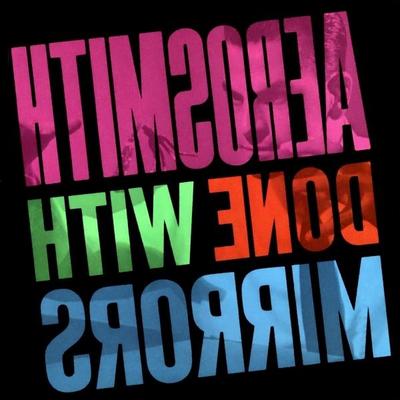
Done With Mirrors (1985)

1.Let the Music Do the Talking
2.My Fist Your Face
3.Shame on You
4.The Reason A Dog
5.Shela
6.Gypsy Boots
7.She's on Fire
8.The Hop
9.Darkness
In the turbulent landscape of 1980s rock, reunion albums were a tempting mirage—offering fans a nostalgic return and artists a chance at redemption. Aerosmith’s attempted comeback, with its original lineup reforming after years of inner strife, aimed to recapture the band’s explosive energy and relevance. Instead, what emerged was a scattered effort, half-heartedly polished and wholly out of touch.
Released in 1985, Done With Mirrors arrived not with a bang but a shrug. By then, rock audiences had shifted. Teenagers were now seduced by the sleek, MTV-molded hair metal of Mötley Crüe and Poison—bands that favored glam over grit. Aerosmith’s denim-and-dust persona, once fearlessly raw, suddenly felt dated. The album’s literal backward liner notes—requiring a mirror to read—became a metaphor for the music itself: self-referential, disoriented, and hard to decipher.
What promised to be a return to form turned out to be a document of decline. Addiction still held the band in its grip, and the record reflects a group going through the motions rather than blazing new ground. Even its lead track, borrowed from Joe Perry’s solo work, betrays a lack of original material. There are glimmers of something real—My Fist Your Face has a snarl to it, and She’s on Fire carries an infectious bounce—but these moments are buried deep in the track list, almost as if the band had lost faith in their own songs.
Sonically, the record stumbles between the hard-edged blues rock that once defined Aerosmith and an uncertain attempt to stay relevant in a world that now demanded eyeliner and teased hair. The Hop channels the band’s barroom roots, and Darkness offers a funk-tinged curiosity, but nothing here reclaims the ferocity that once made their riffs anthemic.
The album's commercial and critical indifference was swift. Forgotten even before the next wave of compilation albums and late-career revivals, Done With Mirrors now stands as a cautionary tale. Not just about substance abuse or fading fame, but about the danger of mistaking reunion for reinvention.
The record doesn’t fail because the band isn’t trying—it fails because they’re trying to pretend nothing has changed.
And everything had.